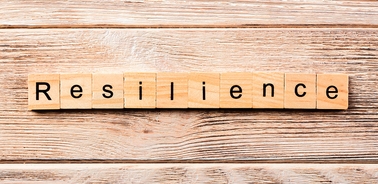- Home
- Our Purpose At Ie University
- Knowledge At Ie University
- Another Kind Of Resilience
Another Kind of Resilience

Resilience can determine whether an individual, organization, or market will decline, stabilize, or flourish during and after a crisis. But what, exactly, is resilience?
By Stefanie Beninger, Assistant Professor of Marketing and Marie Curie Fellow at IE Business School.
Some take an “engineering approach” to resilience, defining it as the ability to bounce back in the face of challenges. One example of this kind of resilience is when a machine breaks and you are able to repair it and keep it functioning as it did before.
This sort of resilience is undeniably important. In our current crisis, many managers are hoping that their companies can carry on and eventually fully recover to their original state. They are taking action, sometimes with governmental help, to support employees, seeking to bounce back when the crisis passes.
However, given the far-reaching impacts of this crisis, both today and into the future, many managers are contemplating the reality that they may need to do more. With unknown timelines and uncertain futures, we may need to look towards another kind of resilience.
Becoming adaptive
A useful alternative view of resilience is the “ecology approach,” which stresses adaption in the face of challenges. In other words, resilience is not just about recovering; it is also about changing to better fit the situation and, ideally, to prosper. For example, scientists have found that animals are adapting to changing temperatures driven by climate change by, for example, migrating earlier in the year. Managers of thriving companies are also often quite good at adapting. For example, they quickly change products and services, prices, and supply chains when challenges—or opportunities—arise.
The current crisis has shown us numerous cases of companies that have been able to adapt. LVMH, the owner of Louis Vuitton, has adapted its production lines to produce hand sanitizer in France, while Christian Siriano, an American fashion label, is sewing personal protective gear for healthcare workers. Both are donating what they are producing free of charge. In another example, as reported by the Cambridge Independent, Dyson, a leading household appliance brand, worked with a tech company to design a ventilator in less than a dozen days. Some of these ventilators will be sold and others donated to healthcare providers. This is a new area of focus for Dyson, but one that will provide their employees with work and society with a much-needed product.
A socially responsible role
To adapt, companies must look to where the need is and assess whether they can play a socially responsible role. Online services, from e-shops to virtual sports, are understandably booming. Joe Wicks of the YouTube channel The Body Coach TV has become an unexpected global hit. After the crisis started, he launched a virtual exercise class for children and families called “P.E. with Joe,” which is uploaded daily. His efforts have resulted in significant advertising revenue, reportedly £80,000 to date, all of which Wicks says will be donated to the UK’s National Health Service.
We are currently facing one of the greatest challenges of our time. Such a challenge requires resilience from all of us, and companies have a key role to play. They can try to eventually bounce back after the crisis passes, or they can take the more ambitious route of adapting in these trying times. While perhaps more challenging, the adaption approach to resilience can provide needed products and services, while also helping build the company’s ability to react to today’s crisis and the crises of the future.